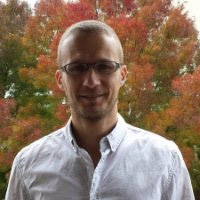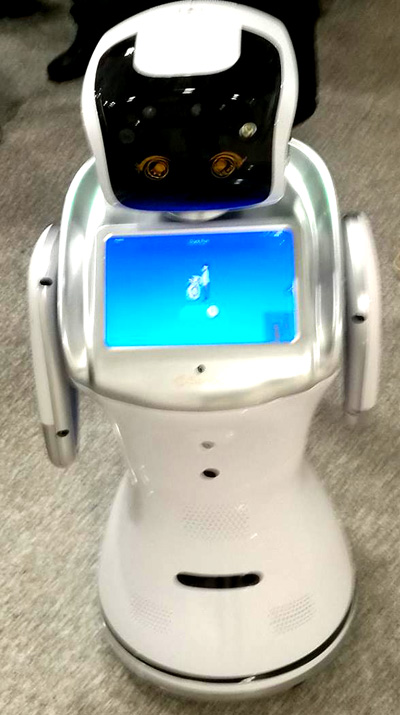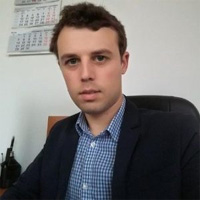The easiest way to discourage a child’s interest in science is to make him read a bit from thick dusty books which have inhabited bookshelves for years. For better or worse, the present day and the world in which children grow up is different from the one of their parents and accepting new realities openly is important.
Today science inhabits not only universities, research centers and museums but has spread everywhere. In this context the main goal of the European Researchers’ Night is to bring closer to the public the people and mysteries behind a range of experiments and studies in various fields of science. There is growing interest in the event every year: both participants and cities hosting the Night have been on the rise.
Eleven Bulgarian towns and cities joined as hosts this year’s tenth edition of the European Researchers’ Night on 29 September: Blagoevgrad, Burgas, Varna, Kotel, Pleven, Plovdiv, Ruse, Sliven, Smolyan, Stara Zagora and Sofia.
In the capital city the events were taking place in 14 venues, including the Largo, the National Polytechnical Museum, the Astronomical Observatory of Sofia University and Sofia Tech Park. In Sofia Tech Park scientists from eleven laboratories demonstrated their work and talked about their inventions to visitors. Radio Bulgaria’s reported talked to Yavor Papazov, one of the founders of the laboratory for cybersecurity.
 “Our laboratory was set up with EU funding, and our principals are the ministries of economy, energy and tourism. Our main goal is to increase the competitive edge of the Bulgarian economy through investments in cybersecurity. We are focused on research and we work on projects that can facilitate the implementation of cybersecurity innovations aimed to benefit Bulgarian enterprises.”
“Our laboratory was set up with EU funding, and our principals are the ministries of economy, energy and tourism. Our main goal is to increase the competitive edge of the Bulgarian economy through investments in cybersecurity. We are focused on research and we work on projects that can facilitate the implementation of cybersecurity innovations aimed to benefit Bulgarian enterprises.”
Two presentations were devoted to what happens to a computer infected with a virus, as well as to the threats stemming from unprotected wireless networks. According to Yavor, using networks is not safe, as their administrators are not aware of the responsibility they take and do not work hard enough to protect them. Thus they put all data and conversations on their network at risk of wiretapping and tracking.
 Several robots were also presented within the framework of the event. One of them is being trained to speak Bulgarian by a team of students from the Technological School of Electronic Systems at the Technical University of Sofia based on a program developed by engineer Rosen Vitanov. Its first test was on September 15 when it welcomed and also led the high school students to their classrooms.
Several robots were also presented within the framework of the event. One of them is being trained to speak Bulgarian by a team of students from the Technological School of Electronic Systems at the Technical University of Sofia based on a program developed by engineer Rosen Vitanov. Its first test was on September 15 when it welcomed and also led the high school students to their classrooms.
And what if you had smart glasses to see how all kinds of electrical appliances work? Surely you think there are no such glasses, but you are wrong. They have been created for a Scandinavian company related to the maritime industry. More about the project from Christian Mikhailov, representative of the producer company:
 “We are a Bulgarian software company that makes Microsoft-based software, mainly for Scandinavian and West European countries. We introduce the Microsoft Hololens Glasses. What the smart glasses show are objects in 3D models that are in a real environment. They call it shared experiences in mixed reality. What we develop with these glasses are different simulations for training purposes. The engineer who uses them has the opportunity to see what is happening to a particular section of the ship. All this happens in real time.”
“We are a Bulgarian software company that makes Microsoft-based software, mainly for Scandinavian and West European countries. We introduce the Microsoft Hololens Glasses. What the smart glasses show are objects in 3D models that are in a real environment. They call it shared experiences in mixed reality. What we develop with these glasses are different simulations for training purposes. The engineer who uses them has the opportunity to see what is happening to a particular section of the ship. All this happens in real time.”
Events such as the European Researchers’ Night suggest two things. Despite insufficient financing of education and science, the desire to create innovations is stronger than unfavorable working conditions. On the other hand the event also raises the question of what happens to financing earmarked for science and how it is spent.
English Daniela Konstantinova
Exactly 3 years ago, on February 24, Russia’s invasion of Ukraine began – an event that woke up Europe 77 years after the end of World War II and called into question one of the main goals of the EU – preventing a new armed conflict on the continent...
The festive service for the consecration of the new Bulgarian Orthodox church in London is led by His Holiness Daniil , Patriarch of Bulgaria, who also officiated at the Ressurection Vespers on Saturday. Hundreds of lay people-official guests and..
The Martenitsa Festival was held in Brussels f or the third consecutive year . Cultural organizations from Bulgaria, Romania and Moldova presented their country's traditions related to the "Baba Marta" holiday, which heralds spring. The initiative..
Exactly 3 years ago, on February 24, Russia’s invasion of Ukraine began – an event that woke up Europe 77 years after the end of World War II and called..

+359 2 9336 661
